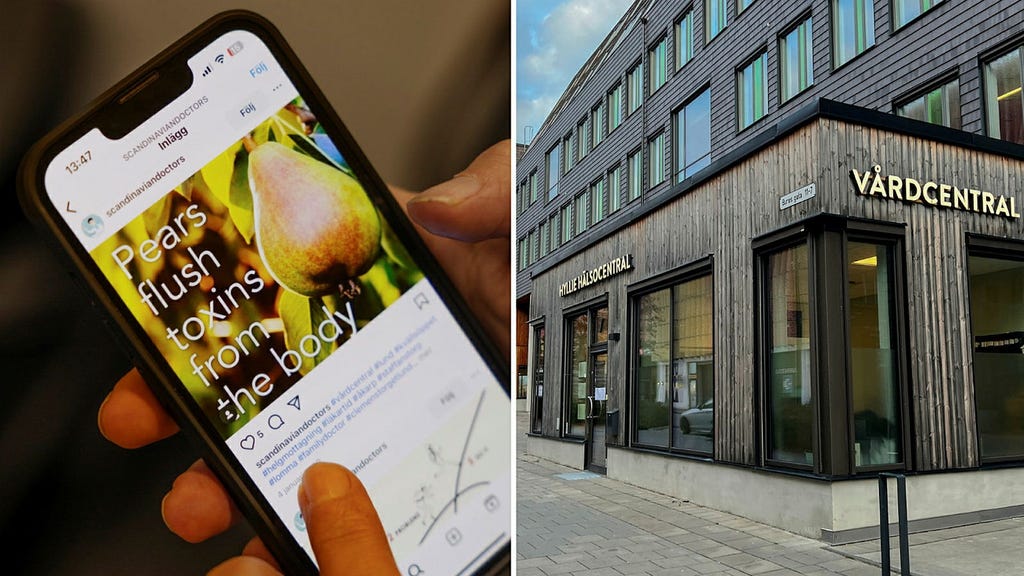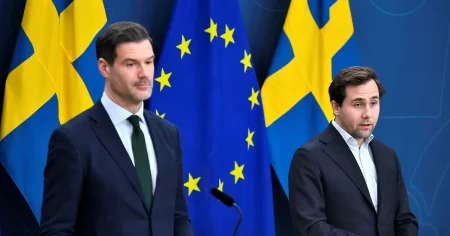Two privately-owned healthcare centers in Malmö, Sweden, contracted by the regional government (Region Skåne), were abruptly shut down after a three-year period of alleged systematic fraud and malpractice. The clinics, Hyllie Hälsocentral and Västra Hamnen Vårdcentral, marketed themselves with a focus on “natural medicine” and “food as medicine,” promoting unconventional health advice through social media, including claims about the healing properties of specific fruits and vegetables. The owner, a Danish doctor, also advocated for consuming large quantities of apple cider vinegar and coconut oil for optimal health. This health advice was traced back to a discredited American “medium” known for propagating pseudoscientific health information.
The clinics, which served 9,000 patients and received 67 million kronor in public funding, prioritized healthy patients seeking health checkups, for which they could charge extra fees. Former employees allege that patients with chronic conditions like diabetes, ADHD, or those on long-term sick leave were often discouraged from registering. The owner’s vision, according to these employees, centered on attracting and treating healthy individuals, while those with complex or demanding medical needs were deemed undesirable. This practice contradicts the fundamental principles of publicly funded healthcare, which is intended to provide equitable access to care for all citizens, regardless of their health status.
A key aspect of the fraudulent activities involved systematically falsifying interpreter fees. Staff were instructed to register interpreter services for every consultation conducted in a language other than Swedish, even if both the doctor and patient were fluent in the same language and no interpreter was used. This scheme netted the clinics an extra 300 kronor per instance, totaling 95,000 kronor in just the first three months of the year. Region Skåne, after discovering this fraudulent practice, demanded reimbursement. Further investigation revealed that out of 373 reported instances of interpreter use, actual interpreters were booked only 55 times.
Beyond the fraudulent billing practices and discriminatory patient selection, the clinics’ owner also had ties to the sale of CBD oil, a product derived from cannabis, marketed by his company for promoting ”balance” and ”good health.” While this was flagged in a whistleblower report, Region Skåne initially dismissed it as irrelevant. Another alarming revelation involved one of the clinic’s doctors who served as a spokesperson for Hizb ut-Tahrir, an anti-democratic organization advocating for a global Islamic caliphate. This doctor was convicted in Denmark for inciting war against Israel. Yet another physician employed at the clinics had his medical license revoked in Denmark and Norway due to severe opioid addiction and had his prescription privileges restricted in Sweden after self-prescribing narcotics.
Over the years, numerous complaints and reports regarding malpractice and negligence were filed with Region Skåne’s patient ombudsman and the national healthcare inspectorate (IVO). These complaints included instances of falsified medical records, denial of care, and inappropriate antibiotic prescriptions, particularly to children. Other healthcare providers in Malmö also reported receiving patients from Hyllie Hälsocentral who had not received adequate care, such as asthma patients not receiving proper inhalers and undocumented migrants being denied care, a violation of Swedish law. The high rate of antibiotic prescriptions at Hyllie Hälsocentral also raised concerns among medical professionals. These reports indicate a widespread pattern of substandard care and potential harm to patients.
Despite the accumulation of complaints and evidence of misconduct, Region Skåne only launched a formal investigation in November 2024, leading to the termination of the clinics’ contracts. The reasons cited included serious deficiencies in staffing, competence, and quality of care, as well as potential damage to public trust in the healthcare system. While Region Skåne officials claim they followed due process by engaging in dialogue with the clinics and issuing warnings, critics question why more decisive action was not taken earlier, given the severity and duration of the alleged misconduct. The regional government is now reviewing all payments made to the clinics and considering a potential police investigation. An ongoing investigation will also determine if the clinics’ practices resulted in any patient harm. This case underscores the challenges of oversight and accountability in privately operated, publicly funded healthcare systems.














